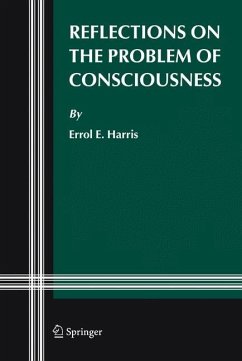The relation between body and mind has presented philosophy with its perennial problem. It exercised the minds of Plato and Aristotle and it was implicit in the thought, if not always present to the minds, of the Presocratics. In modern philosophy it became explicit in Descartes's Meditations and remained central to the deliberations of every subsequent philosopher of any significance from Hobbes to Hume, from Spinoza to Hegel, and from Husserl and Heidegger to Russell and Whitehead. From whatever angle one approaches philosophy one cannot avoid this problem. Moral philosophy, both ethical and political, compels one to adopt some conception of human nature, its origins and status within the world, for one cannot decide on the best way to live without considering the impact of natural influences on the human condition and of human behaviour on nature including other humans; and these considerations at once raise the question of the relation of the human mind to Nature and the natural body it enlightens. A philosophy of Nature must include the place of humanity in the natural scheme, not only the human body, but also the knowing mind. Metaphysics cannot be divorced from Epistemology nor can that neglect the part played in the acquisition of knowledge by the bodily senses. And clearly a philosophy of mind must include some vision of the relation of the mind to the body it inhabits.
From the reviews:"This book makes distinctive and rare contributions to philosophy of mind. The most significant and unusual virtue of this book is its range, combining a deep knowledge of the history of philosophy with critiques of contemporary works in philosophy of mind and the sciences of cognition. There are a few writers who have pursued a dialog between contemporary philosophy of mind/cognitive science and Contintental philosophers such as Husserl, Heidegger and Merleau-Ponty and Pragmatists such as William James. Harris is unique, in my experience, in bringing to bear additional insights from such fixtures in the philosophical canon as Aristotle, Spinoza, Hegel, Bradley and Collingwood alongside such contemporary spokespersons of cognitive science as Antonio Damasio and Daniel Dennett. For those us of us who think that those who ignore the lessons of philosophical history may be condemned to repeat them, this book may prove an important challenge." (Steven Horst, Chair of Philosophy, Wesleyan University, CT, USA)"Every library should be in possession of this engaging and delightful book. Anyone interested in the problems of the philosophy of mind, both scholars and layman alike, will find this insightful book both highly rewarding and a joy to read."(Samuel Attard, Department of Philosophy, St. John's College, New York, USA)








